iHeartDogs is reader supported. Some of the links below may be paid affiliate links, where we receive a small commission on a product at no additional cost to you.
Organic dog food is not just a trend, it’s a commitment to the health and well-being of our dogs. In a market flooded with choices, finding the best organic dog food can be a challenge for conscientious pet parents. We’ve created this comprehensive guide to help you navigate through the myriad of organic options to find the highest quality, most nutritious, and sustainable organic meals for your canine companion. From understanding the benefits of organic ingredients to exploring the top-rated brands, we delve into what makes an organic diet beneficial for your dog’s health, longevity, and vitality. Whether you’re looking for grain-free options, allergy-friendly recipes, or simply the best all-natural organic dog foods, these choices will ensure your furry friend gets the optimum balance of taste and nutrition.
What Are The Benefits of Organic Dog Food? What Qualifies As Organic?
Organic dog food can provide several benefits for your canine friend’s health and overall well-being, just as organic food can benefit human health. Below are a few key benefits:
- Nutrient-Rich: Organic dog food often has a higher nutritional value than conventional dog food because it typically contains higher-quality ingredients. It’s generally made from whole foods that are rich in essential vitamins, minerals, and antioxidants which are crucial for your pet’s health.
- No Harmful Additives: Organic food doesn’t contain artificial flavors, preservatives, or colors, which can sometimes cause allergic reactions in dogs. Organic foods also typically lack synthetic fertilizers, pesticides, and genetically modified organisms (GMOs), which can be harmful in the long term.
- Promotes a Healthy Coat and Skin: High-quality proteins and nutrients in organic foods can contribute to a healthier, shinier coat and healthier skin.
- Better Digestion: Because organic food usually consists of high-quality ingredients, it can be easier for dogs to digest. This can result in less gastrointestinal upset and firmer, smaller stools.
- Promotes Overall Health: Organic options can boost your pet’s immunity, promote better weight management, and improve heart health.
- Environmentally Friendly: Choosing organic food for your dog also means you’re contributing to a healthier environment because organic farming practices tend to be more sustainable and cause less pollution than conventional farming methods.
The Organic Label
As for what qualifies as organic, it’s essential to understand that not all dog foods labeled as “organic” meet the same standards. In the United States, for dog food to be labeled “organic,” it must meet certain requirements set by the United States Department of Agriculture (USDA). According to USDA guidelines, organic food is produced without using most conventional pesticides, synthetic fertilizers, bioengineering (GMOs), or ionizing radiation.
A product can be labeled as “100% organic” if it contains only organically produced ingredients, excluding water and salt. Products that contain at least 95% organic ingredients can be labeled “organic.” If the product contains at least 70% organic ingredients, the label can state “made with organic ingredients.”
Always remember that each dog is unique and might have specific dietary needs based on age, breed, size, activity level, and health status. Therefore, it’s essential to consult with your veterinarian before making any significant changes to your dog’s diet.
Related: Top 13 Dog Food Brands With No Recalls
What Are The Downsides of Organic Dog Food?
While organic dog food has numerous benefits, it’s important to consider the potential downsides before making a switch in your pet’s diet. Here are some key drawbacks:
- Cost: Organic dog food tends to be more expensive than conventional dog food because organic farming methods can be more labor-intensive and have lower yields. The use of higher quality, organic ingredients also contributes to the cost.
- Availability: Organic dog food may not be as readily available as traditional dog food. Depending on your location, you may need to visit specialized pet stores or order it online, which could entail shipping costs or delays.
- Storage and Shelf Life: Organic choices usually doesn’t contain artificial preservatives, which can mean it has a shorter shelf life. This could necessitate more frequent purchases and careful storage.
- Lack of Standards: The standards for what qualifies as “organic” can vary significantly from country to country. In some cases, the label may be used loosely, and the product might not be 100% organic. It’s important to look for certifications like USDA Organic in the US to ensure the food you’re purchasing is genuinely organic.
- Nutritional Balance: While organic ingredients are typically of higher quality, the organic label doesn’t necessarily mean the food is nutritionally balanced. Not all organic dog foods contain the ideal mix of proteins, carbohydrates, fats, and essential nutrients that dogs need for optimal health. Always look for a “complete and balanced” claim on the pet food, which indicates it can serve as your pet’s sole source of nutrition.
- Taste Preferences: Some dogs may not like the taste of organic food, especially if they’re used to a diet of conventional food. It can sometimes be a bit of a challenge to get your dog to transition to a new diet.
Remember, the quality of your dog’s diet is about more than just whether or not it’s organic. A balanced diet that meets all of your dog’s nutritional needs is essential. Always consult with a veterinarian or a pet nutrition expert before making major changes to your pet’s diet.
6 Best Organic Dog Foods
Tender & True Organic Chicken & Liver Recipe Dog Food is a grain-free option made with USDA Organic Certified chicken as the first ingredient and designed for all life stages of dogs. It does not contain any corn, wheat or soy and is formulated for a balanced diet. Tender & True believes in a farm to bowl philosophy and all their recipes are formulated by a pet nutritionist.
The Purina Beyond Natural, Pate, High Protein Wet Dog Food Variety Pack, featuring Organic Chicken Recipes, offers dogs a diet packed with high-quality, organic chicken. The pate texture is generally well-received by dogs, making it suitable for both picky eaters and those with sensitive teeth or gums. Purina’s commitment to organic ingredients means fewer pesticides and no artificial colors or flavors, aligning with the preferences of health-conscious pet parents who are watching their budget. Additionally, the variety pack format offers a convenient way to introduce different flavors to your dog’s diet, preventing mealtime monotony.
Newman’s Own Chicken & Liver Dinner for Dogs offers a combination of chicken and liver that provides a rich source of protein. The ingredients are certified organic and list beef and poutry as the first ingredients. This organic designation means no harmful pesticides or artificial additives, which is a significant plus for health-conscious pet parents. And like the rest of Newman’s Own foods, proceeds of sales benefit animals in need.
Castor & Pollux Organix Grain Free Organic Chicken & Vegetable Recipe Adult Canned Dog Food is a nutritious dog food made with organic, free-range chicken and a blend of superfoods like organic flaxseed, blueberries, and coconut flour. It contains no artificial preservatives, growth hormones or antibiotics, chemical pesticides, or synthetic fertilizers. This food is cooked in an organically certified USA kitchen and should be reduced if fed with dry food.
Open Farm Homestead Turkey & Ancient Grains Dry Dog Food is made with humanely-raised, American-raised turkey and a blend of wholesome, gluten-free ancient grains and local produce. This formula is designed for optimal health and taste, without artificial flavors, colors, or preservatives. Open Farm provides full transparency on ingredient sourcing, allowing owners to trace the origin of every ingredient.
Carna4 Hand Crafted Dog Food is a 6-pound bag of dog food made with authentic, lightly cooked and true food ingredients grown in Canada and the U.S. The food contains real meat in its natural state, and every batch is quarantined for 2 weeks and tested for 15 pathogens and toxins, making it a safe option. It’s also a convenient alternative to raw or dehydrated diets that still offers all the benefits of real food.
Frequently Asked Questions About Organic Dog Food
What does “organic” mean in dog food?
Organic dog food refers to dog food made from ingredients that were grown or raised without the use of synthetic fertilizers, pesticides, antibiotics, or growth hormones. In the U.S., the term is regulated by the USDA, and products labeled “organic” must meet specific requirements.
Is organic dog food healthier than regular dog food?
Organic dog food often contains higher quality ingredients and avoids artificial additives, which can be healthier in some ways. However, “organic” doesn’t necessarily mean the food is nutritionally balanced. Always ensure the food meets all your dog’s nutritional needs.
Why is organic dog food more expensive?
Organic farming practices are often more labor-intensive and yield less product than conventional methods. The use of higher quality, organic ingredients also adds to the cost.
Where can I buy organic dog food?
Organic dog food can be purchased at pet stores, some grocery stores, and online. Availability might depend on your location, and specialized pet stores or online retailers often have the best selection.
Is organic dog food better for my dog’s coat and skin?
Organic dog food is often rich in high-quality proteins and essential fatty acids, which can promote healthier skin and a shinier coat. However, individual results may vary based on your dog’s specific nutritional needs and overall health.
Does organic dog food have a shorter shelf life?
Because it lacks artificial preservatives, organic options can sometimes have a shorter shelf life than conventional dog food. Always check the expiration date and store the food as directed to maintain its freshness.
Will my dog like the taste of organic dog food?
Taste preferences can vary greatly from dog to dog. Some dogs might enjoy the taste of organic food, while others might need a gradual transition from their current diet.
Can puppies eat organic dog food?
Puppies can eat organic dog food as long as it’s formulated for their specific nutritional needs. Puppies need more protein and certain nutrients for growth, so look for organic puppy food or all-life-stage food.
Is organic dog food good for dogs with allergies?
Organic dog food, especially varieties with limited ingredients, might benefit dogs with certain food allergies or sensitivities, as it avoids artificial additives. However, if your dog has a specific dietary restriction or allergy, it’s best to consult with a vet.
Does organic dog food help with weight management?
Organic dog food can contribute to weight management due to its high-quality ingredients and lack of fillers, but the key is the overall nutritional balance and calorie control. An appropriate feeding routine and regular exercise are also crucial for healthy weight management.
In conclusion, organic dog food provides a wholesome, natural option for feeding your canine companion. While they can sometimes be pricier than non-organic alternatives, the potential health benefits can make it worth the investment. Always remember, each dog is unique with specific nutritional needs. Hence, it’s important to consult your vet before making significant changes to your dog’s diet. With the information provided in this article, we hope you’re better equipped to make an informed decision about the best organic food for your four-legged friend. Remember, quality nutrition is one of the keys to a long, happy, and healthy life for your dog.
iHeartDogs is reader supported. Some of the links below may be paid affiliate links, where we receive a small commission on a product at no additional cost to you.

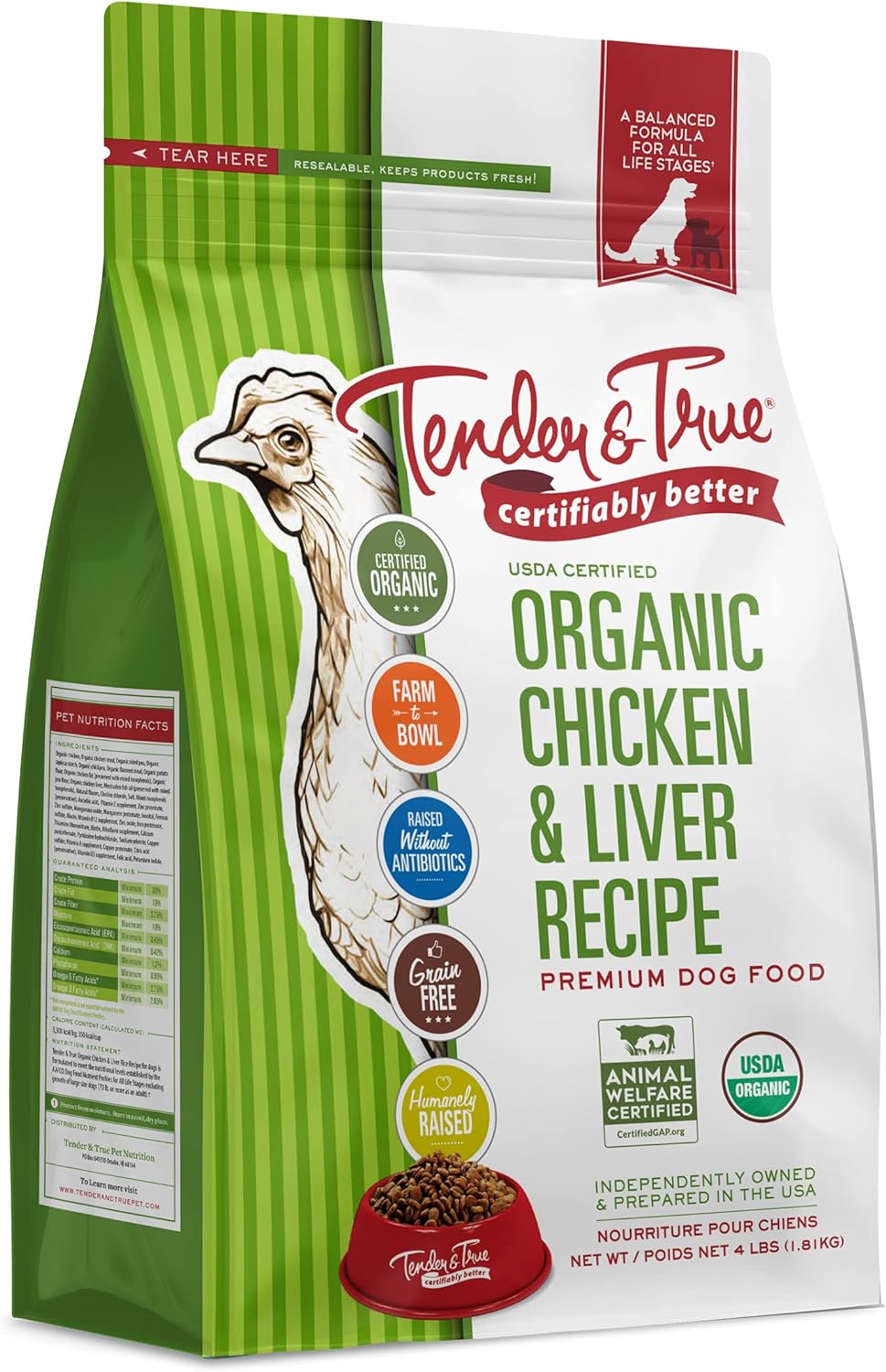
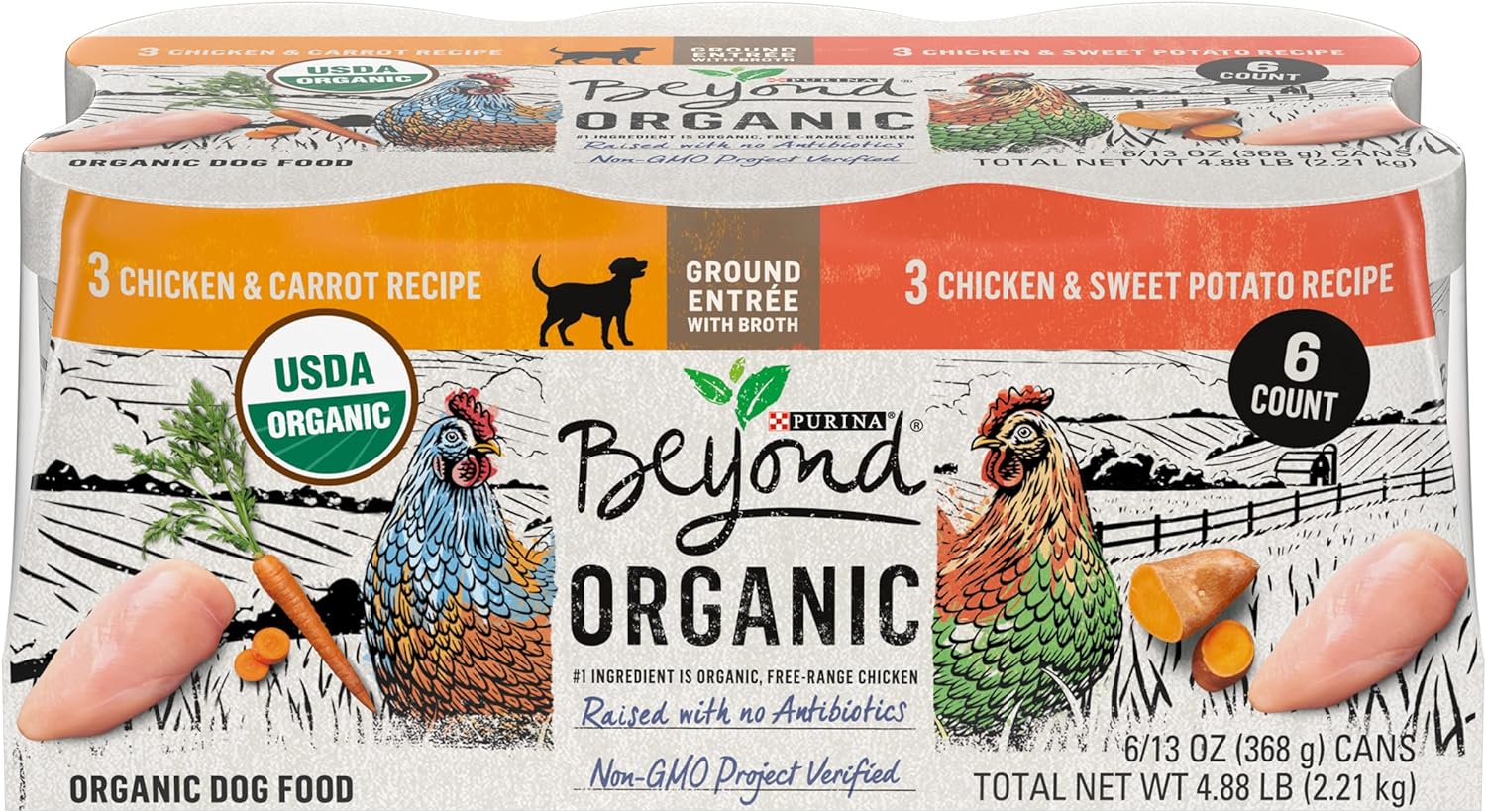
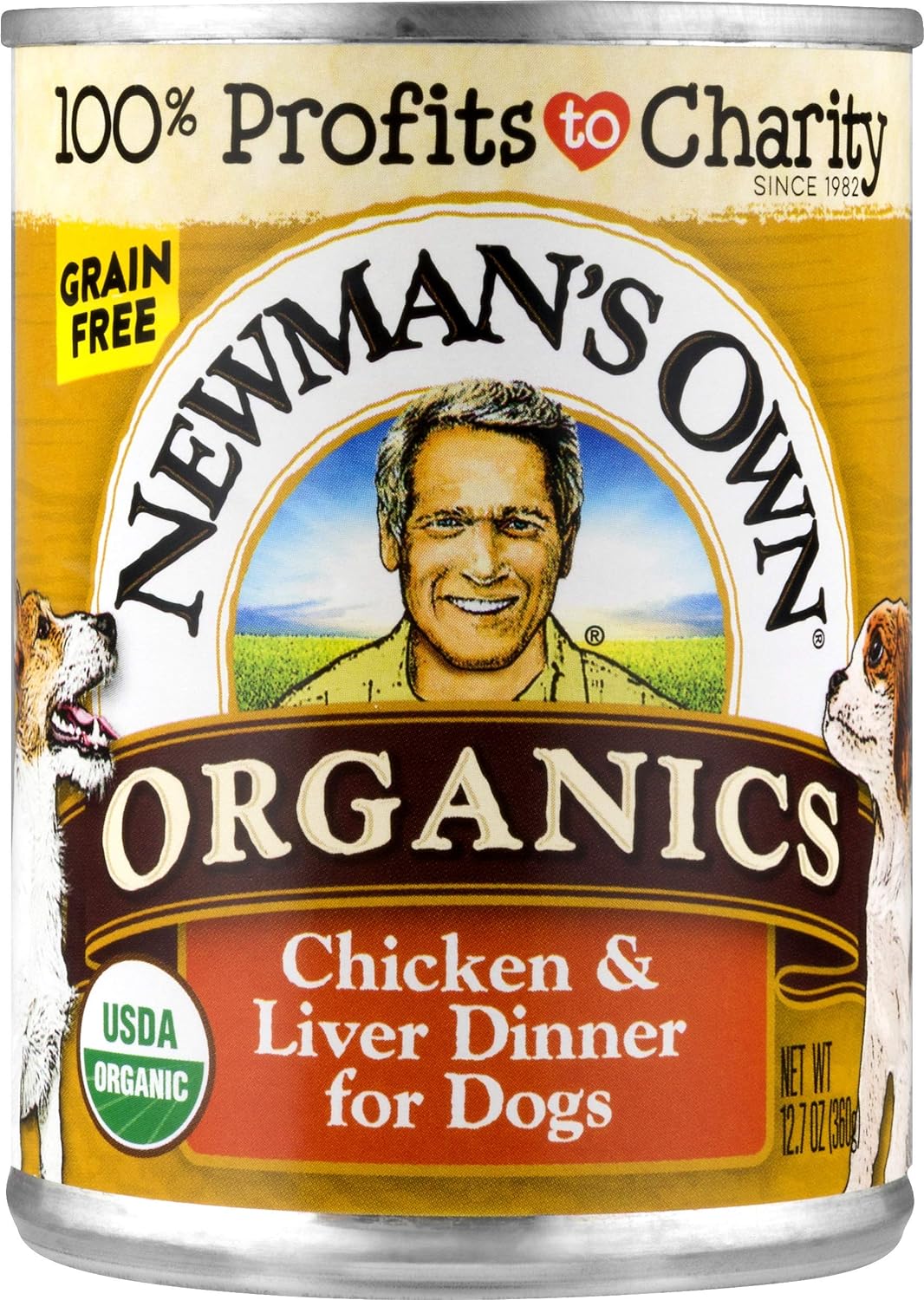
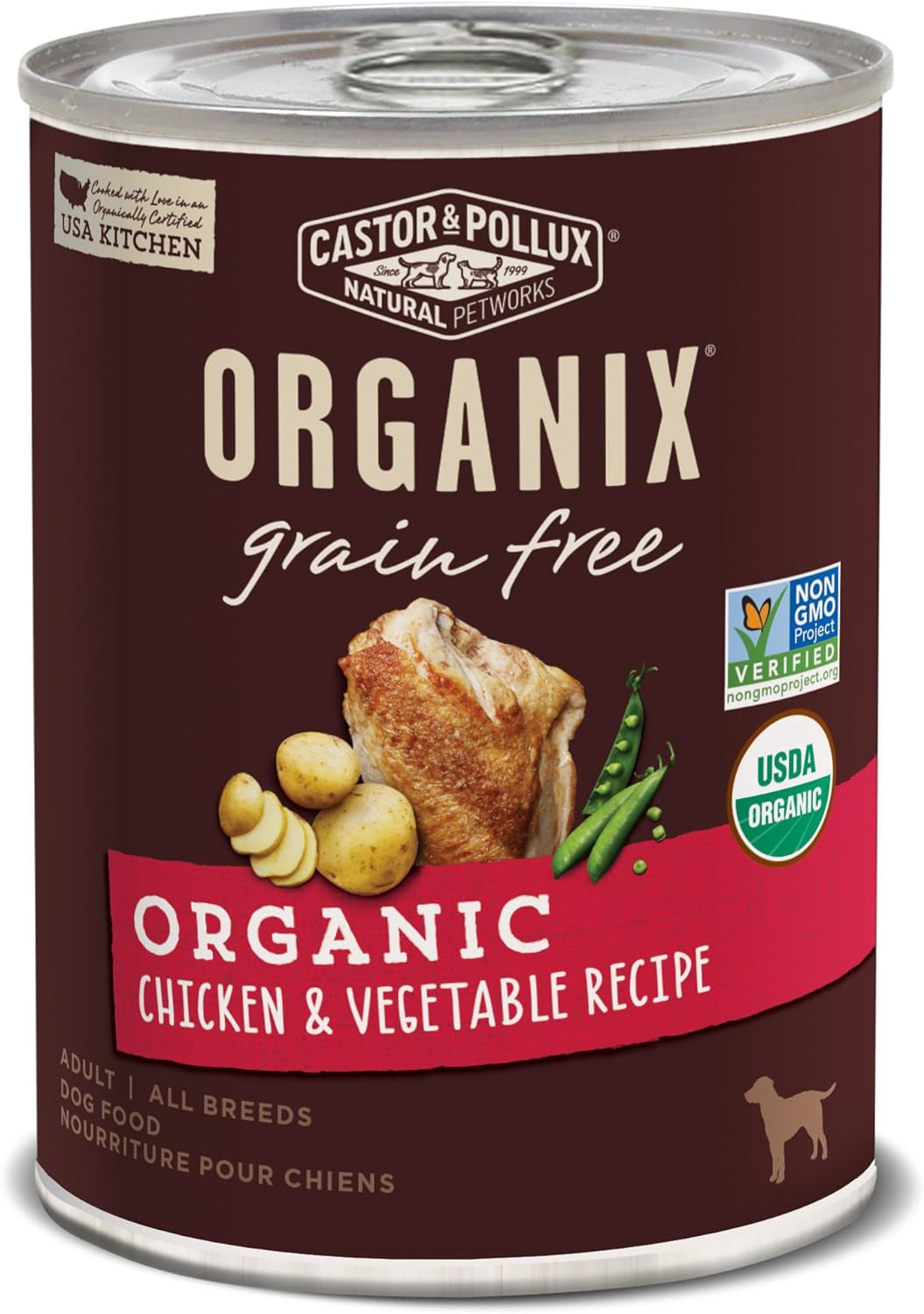
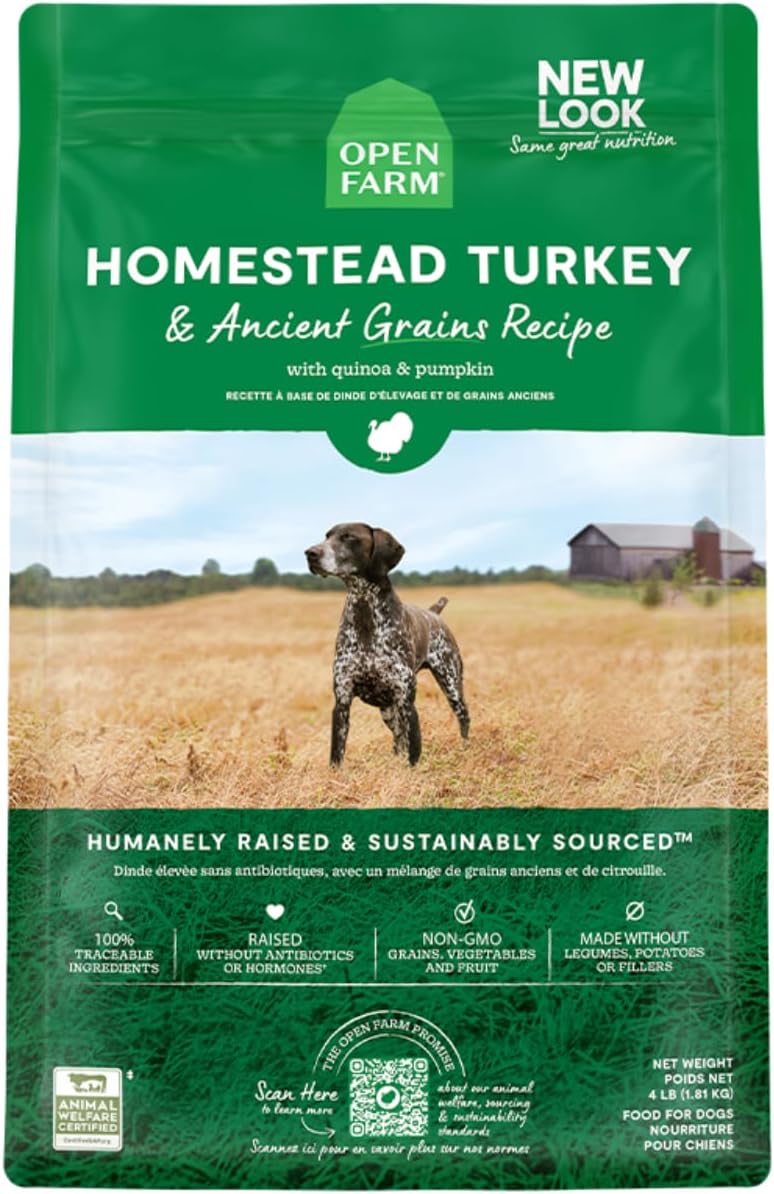
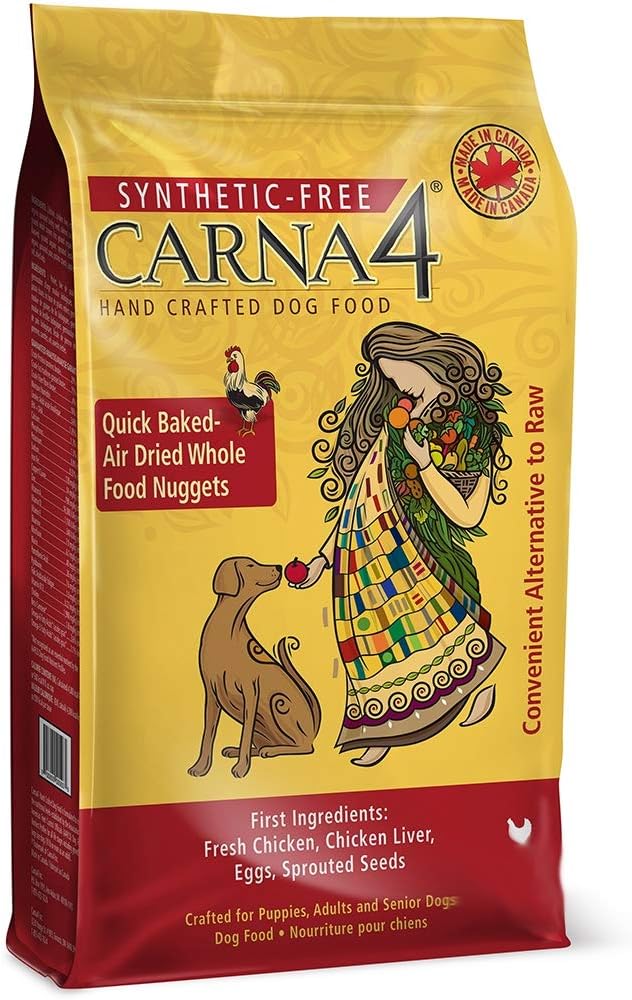

 Toledo, United States.
Toledo, United States.